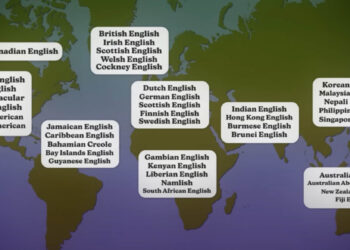
“A Novel Bookstore” is a work of fiction by Laurence Cossé. It was written in French and translated into English by Alison Anderson. Cossé’s English-language publisher is Europa Editions, about which more in a minute.
This novel also happens to serve as something of a postscript to the blog post on the Metadatarium bookshop, which appeared here last week.
Any work of fiction with the word “novel” in the title is, of course, metafiction. On the level of story, this is a literary police procedural. There is a series of attacks (but no murders, alas), apparently put together by a conspiratorial group. The target? The peer-review committee for Paris’s most intellectually ambitious bookstore. Somehow the bookstore operators manage to find a cop who has read everything. (What is it with the French?) He takes on the case, defies his superiors by pursuing it long after he has been told to put his attention elsewhere, and finally uncovers the plot and the plotters. This does not save the bookstore, alas, whose slender financial underpinnings are exposed. But the righteous soldier on — for truth, beauty, and literature.
It is the level of metacriticism, however, that prompts me to call the book to the attention of the discerning readership of the Scholarly Kitchen. “A Novel Bookstore” is in fact a didactic essay masquerading as a novel. Its topics are editorial discrimination, the place of books in forging an intellectual community in the real (that is, physical) world, and the proper role of authority — or, as it is never expressed in French, the problem of, “Who sez?” The villains are of two intertwined types: commercial hucksters who purvey books of poor quality in obeisance to Mammon, and those who believe that no authority can determine what is good or not. This last group has a post-modern twang, but those familiar with the world of scholarly communications will recognize that this is also the animating spirit behind PLoS ONE. Yes, who sez?
But the story. A somewhat bohemian bookseller and lover of literature meets a wealthy woman who also loves literature. They put their heads together and determine to found the ideal bookstore, to be named A Novel Bookstore. Much of the book consists of a discussion of the policies and management decisions these two must make. How many books should the bookstore stock? Should there be any new books at all? How will they be displayed? At the core of the shop policies is the view that the store needs a distinguished, anonymous panel of writers to make the selections. Eight literary giants are recruited in secret, their identities known only to the two partners. They produce lists of the essential books. And there is this twist: any book that appears on any single list finds a place in the bookshop; it is not necessary for all eight judges to agree. The bookshop is thus inclusive within a framework of peer review.
The bookshop becomes a lively meeting place for Parisian intellectuals, but some people are disturbed by the selection process. Some excluded authors become embittered; a smear campaign breaks out in the media; and then attacks are levied against the judges. Who could have released their names? Who could be the villains? Although it is not uncommon for peer reviewers to complain about their task, it is only in this novel that their lives are at stake.
The thesis of this book — and, yes, it is a novel with a thesis — is that the bad drives out the good, but heroic efforts can keep the flame of quality burning. Further, here are the steps to light the flame. This is a bit overwrought for me; besides, the evidence is against conspiracies inasmuch as it is difficult to imagine people working together to a sufficient degree to pull one off. But at the heart of this liitle book is a moral plea for a determinedly brave effort to fight for what is good about the life of the mind.
Which brings me back to Europa Editions. Founded by two European publishers who were looking to expand the market for translations, Europa has assembled an exceptional list of fine books. Europa, in other words, seems almost to be a character in “The Good Novel.” A further coincidence is that I purchased the book in an elegant bookstore in Carmel, California, which, except for the magnificent climate, could pass for the setting of this novel. So this is a meta-meta-metanovel, and no less delightful for all that.
My thought after finishing this book was that if Europa could do it, so could many others, whether in literary works or scholarly and professional publishing. The bad will not drive out the good because the good are stubborn.



